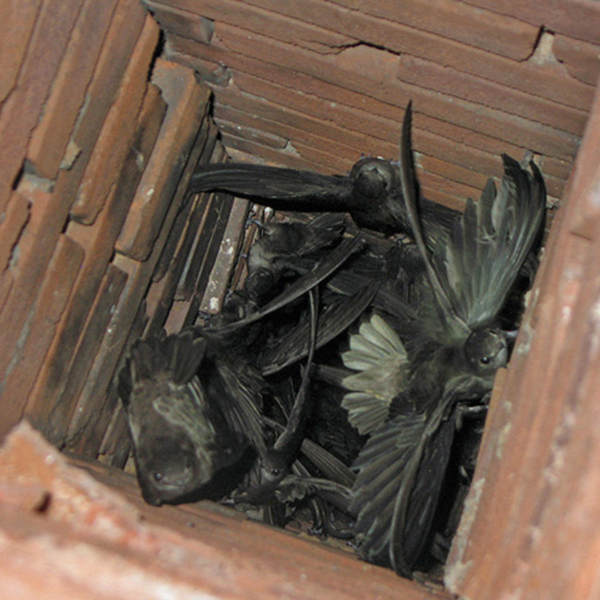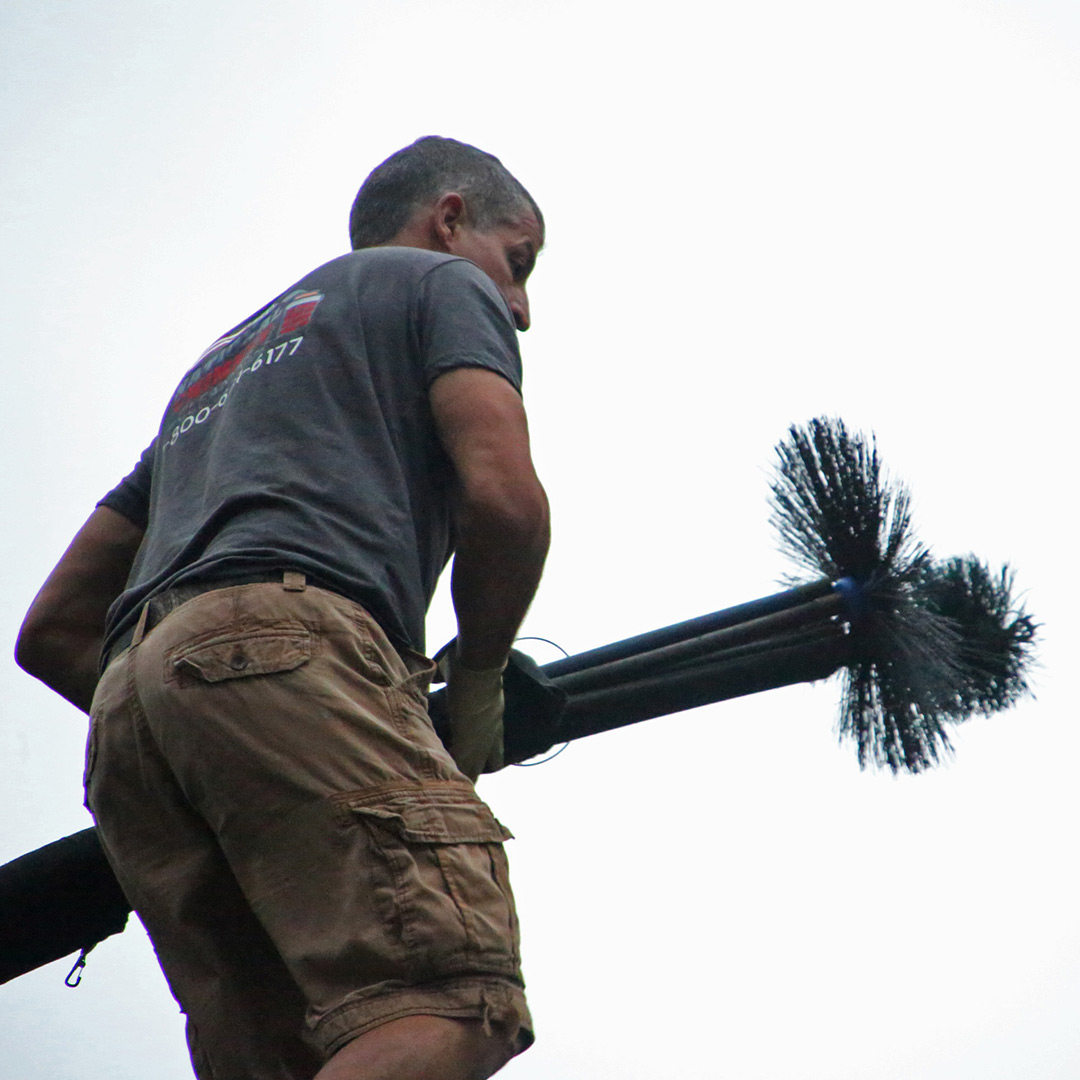Animals in My Chimney – What Can I Do?
Most small animals make their own homes, but many of them aren’t opposed to using chimneys as dwellings and saving themselves some work. Many problems can arise (for the homeowners, not the animals) when these critters set up homes in a chimney.
National Chimney Cleaners of Fairfield County, CT, and Morris County, NJ, would like to cover a little about what kinds of animals invade chimneys, the problems they can cause, and what you can do about it.
 Animals that like chimneys
Animals that like chimneys
The most common types of small animals that end up in chimneys include:
- Birds
- Squirrels
- Raccoons
- Bats
- Rodents
Many of these animals use chimneys for shelter from the elements. Some use chimneys as birthing grounds.
Trouble with animals
Having any kind of animal in your chimney is a potential problem. Here are five issues you may have to deal with.
Foul odors
Animals often give off foul odors. The animals don’t mind it, but most people don’t want the smell seeping into their homes. Far worse is when a small animal dies in the flue. That smell can get people to evacuate the house.
Flue blockages
If animals build nests or store food inside the chimney, this material can cause smoke to draft sluggishly. Chimney flues are built in a particular size to draft a particular size of the fireplace. Any changes in this arrangement will lead to drafting irregularities.
Backup of smoke and carbon monoxide
A significant flue obstruction can cause smoke and carbon monoxide to back up into the room. Smoke is bad enough, but carbon monoxide can be deadly when inhaled by people and house pets.
More fuel for a chimney fire
Should a chimney fire start, an accumulation of nesting materials, food, and dead animals can all serve as additional fuel. It’s important to remember that not all chimney fires are heavy-duty events. Many are relatively small and of short duration. With a lot of extra fuel, a small fire could turn big.
Home invasion
Some of the animals that end up in your chimney can end up in your home. Any time your fireplace damper is open, curious animals can scurry, crawl, or fly down into the house.
An important note on chimney swifts
The chimney swift is a bird that is federally protected. You can be fined if you knowingly destroy these birds or their nests that contain eggs. All you can do is wait for them to leave and then install a secure chimney cap (see below).

Solutions
Some people figure they can just crank up the fireplace and smoke the animals out. Theoretically, this isn’t a bad idea. But what if the smoke kills some of the animals and you end up with dead bodies that lead to blockages and odors?
The best solution has two parts:
Have your chimney cleaned
This will remove living and dead animals along with any debris they bring with them. (Your chimney technician should be able to identify chimney swifts before work begins.)
Have a chimney cap installed
This device will keep animals – as well as tree debris – out of the flue.
A clean chimney is a safer chimney
National Chimney Cleaners is ready to help with all your chimney needs, from chimney sweeping and inspection to animal removal, chimney cap installation and repair work.
Speak with a chimney expert today at (800) 631-6177, or get in touch through our handy contact form.

 Animals that like chimneys
Animals that like chimneys